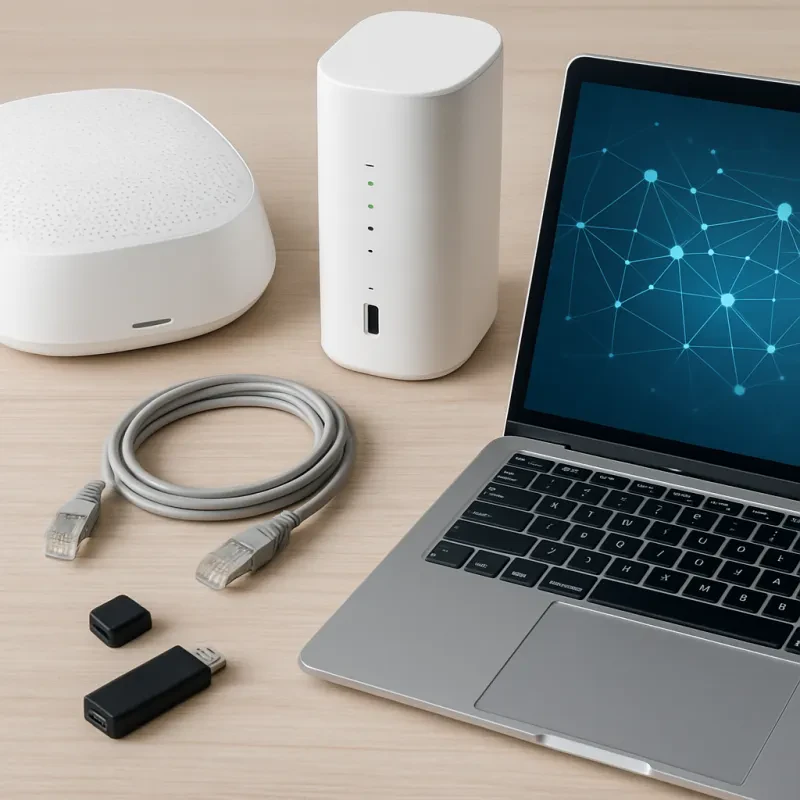Mesh networks are a cutting-edge technology that is revolutionizing the way we stay connected. Unlike traditional networks that rely on a single central hub to transmit data, mesh networks use multiple interconnected access points to create a robust and reliable network. This means that even if one access point fails, the network can automatically reroute the data through another pathway, ensuring seamless connectivity.
One of the key advantages of mesh networks is their ability to extend the range of coverage far beyond what a single router can achieve. By adding more access points, users can create a larger network that blankets their entire home or office with a strong and stable connection. This is particularly useful for larger spaces or buildings with thick walls that can interfere with Wi-Fi signals.
Another benefit of mesh networks is their scalability. Users can easily add more access points to their network as their needs grow, without having to worry about compatibility issues or complicated setup processes. This makes mesh networks a flexible and future-proof investment for individuals and businesses looking to expand their connectivity options.
Overall, mesh networks offer a reliable, versatile, and efficient solution for staying connected in today's increasingly digital world. While the initial investment may be higher than traditional networks, the benefits of extended coverage, seamless connectivity, and easy scalability make mesh networks a worthwhile investment for anyone looking to upgrade their network infrastructure.
Advantages of Mesh Networks
Mesh networks offer numerous advantages that make them a valuable investment for individuals and businesses alike. One of the key benefits of mesh networks is their ability to provide reliable and expansive coverage. Traditional Wi-Fi networks can be limited by the range of a single router, leading to dead zones and weak connections in certain areas. With a mesh network, multiple nodes work together to create a seamless web of coverage, ensuring that every corner of your home or office receives a strong signal.
Additionally, mesh networks are known for their flexibility and scalability. As your network needs grow and change, you can simply add more nodes to expand coverage without compromising performance. This makes mesh networks an ideal solution for large households, offices, or outdoor spaces where traditional networks may struggle to reach. Furthermore, the self-healing capabilities of mesh networks are another key advantage. If one node fails or becomes disconnected, the other nodes can automatically reroute traffic to ensure uninterrupted connectivity, providing peace of mind for users.
Another advantage of mesh networks is their ability to improve network performance. By enabling devices to connect to the nearest node rather than a distant router, mesh networks can reduce latency and congestion, resulting in faster speeds and smoother connectivity. This can be particularly beneficial for activities such as online gaming, video streaming, or video conferencing, where a stable and fast connection is essential. Overall, the advantages of mesh networks make them a worthwhile investment for anyone seeking reliable, flexible, and high-performance Wi-Fi coverage.
How Mesh Networks Improve Connectivity
Mesh networks offer a revolutionary way to improve connectivity in our increasingly digital world. Traditional networks rely on a central hub to distribute internet access, which can lead to bottlenecks and dead zones in coverage. Mesh networks, on the other hand, work by connecting multiple nodes together to create a web-like network. This means that if one node goes down, the network can still function by rerouting through other nodes, ensuring uninterrupted connectivity for users.
One of the key advantages of mesh networks is their ability to extend coverage to areas that may be out of reach for traditional networks. By adding more nodes to the network, users can create a wider coverage area without sacrificing speed or reliability. This is especially beneficial in rural or remote areas where traditional internet infrastructure may be lacking.
Additionally, mesh networks are incredibly versatile and scalable. Whether you need to connect a small office or an entire city, mesh networks can easily adapt to the size and scope of your connectivity needs. This scalability makes them a worthwhile investment for businesses looking to future-proof their network infrastructure.
Overall, the benefits of mesh networks far outweigh the initial investment. By leveraging the power of multiple nodes working together, these networks offer improved connectivity, coverage, and reliability for users. Whether you're a business looking to upgrade your network or a homeowner struggling with dead zones, investing in a mesh network could be the solution you've been searching for.
Factors to Consider When Investing in Mesh Networks
Investing in mesh networks can be a game-changer for businesses looking to improve their wireless communication capabilities. However, before diving into this technology, there are several important factors to consider.
One key factor is the size of your organization and the intended usage of the mesh network. Larger companies with multiple locations may benefit more from a mesh network compared to smaller businesses with a single office space. Additionally, the number of devices that will be connected to the network should also be taken into consideration.
Another important consideration is the cost associated with setting up and maintaining a mesh network. While this technology can provide numerous benefits such as improved network coverage and reliability, it can also be a significant investment. Businesses must weigh the potential return on investment with the upfront costs involved in implementing a mesh network.
Finally, the security of the mesh network should not be overlooked. With the increasing number of cyber threats and data breaches, it is crucial to ensure that your network is secure and protected. Businesses should invest in security measures such as encryption protocols and firewalls to safeguard their sensitive data and prevent unauthorized access to the network.


